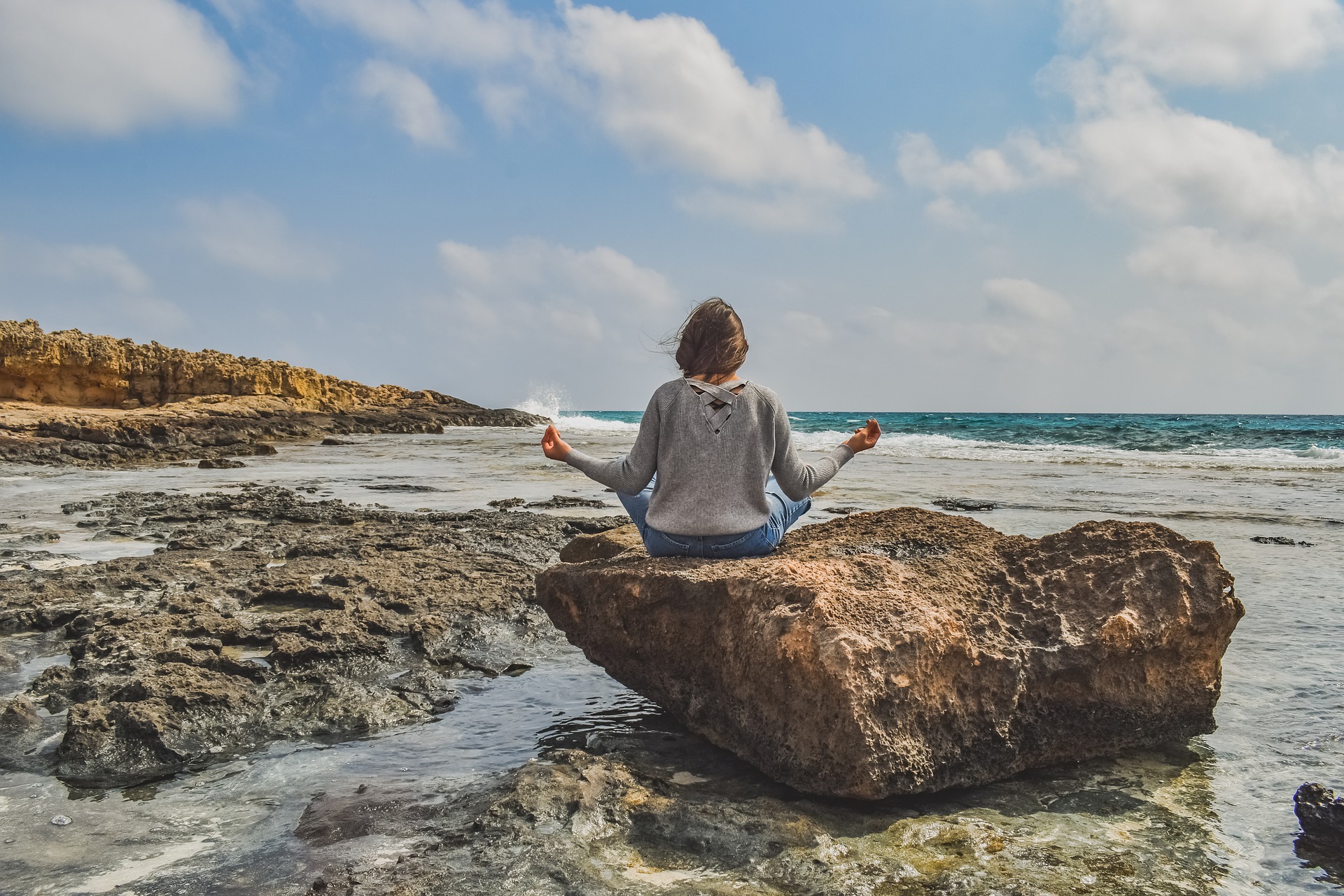12 tips for independently managing anxiety

Suffering from anxiety attacks, in addition to being exhausting, also creates disorientation and insecurity.
When a person suffers from anxiety, he somehow distances himself from himself, he stops having faith in his inner world, in his mind and body system. This means that he tends to fear his internal state and perceive it as an enemy, a labyrinth in which it is easy to get lost.
And it is precisely in this way that the sense of disorientation, insecurity and fear increase, since there is no longer a safe place to take refuge. But the safest refuge is inside oneself, since it is the only place we live in and it will always be the only one where we could find shelter.
To live your life better and reduce anxiety, you need to learn to re-establish contact with your inner self and make peace with those parts that tend to flee far away, projecting the search for your own balance and well-being towards the outside world. It will not be the partner, the therapist or the psychologist who will have the magic wand to transform anxiety into feelings of love and peace; the transformation of malaise into well-being begins with the relationship with oneself and with the personal commitment to apply strategies that favor this transformation process to regain oneself.
Below we propose 12 small useful tips to increase self-awareness and improve inner well-being, in order to better manage anxiety and negative moods.
These small tips do not replace therapy or psychological intervention but allow you to regain power and take responsibility in the process to regain self-confidence.
- THE BRAIN ALWAYS LISTENS TO YOU
The brain is always listening, every word you say to yourself, for the brain is a command to act, to produce emotions and behaviors. If you say, for example, “I can’t take it anymore” you will feel tired, nervous, sad … Each word has its own vibration and gives rise to moods in you. Choosing the words you speak to yourself and changing the way you relate to yourself can improve your inner life. Talk to you with kindness, care and love.
- YOUR ATTENTION CREATES ENERGY
Depending on where you place your attention, you determine the experience you live, as your attention creates energy and energy shapes the emotional dimension which, in turn, gives life to your personal reality.
There are people who return home after a whole working day and the only thing they focus their attention on, remembering their day, are the events that have not worked, thus generating discontent and sadness. Then they look around in the present moment and observe everything that is not working (the husband has not emptied the dishwasher, the children are not studying …) and feed frustration, impatience and anger.
By learning to direct your attention you can change your emotional state, by taking the reins of thoughts you can direct your attention on your successes, what worked, what you have and what you want, changing your life experience.
The quality of life of the mind is intimately related to the quality of your emotions. In life you can build or destroy, it all depends on the channel you are tuned to.
- CHANGE SCHEME
If you realize that you are experiencing a moment of emotional discomfort and you do not have the techniques that allow you to transform negative thoughts and emotions into positive empowering thoughts and emotions in a few seconds, then you will have to act on the outside. Stop what you are doing, change the environment and do an action that generally makes you feel good, for example go to the balcony and listen to the birds singing, sit for five minutes and listen to the nature around you, tune in to the vibration of life and carry that vibration within you, breathe deeply and let go of the sabotaging emotions.
- EMOTION IS A MUSCLE
Emotions are like muscles, the more frustration you feel and the easier it will be to access this emotional rhythm. Emotional fitness is a discipline that allows you to train emotional muscles such as joy, love and success. You can learn these techniques through specific workshops or with a coach and acquire the strategies to transform your malaise in well-being in autonomy with method and strategy.
- CHEMISTRY OF THE BODY
Whether you are aware of it or not, your body chemistry affects both your mental state and your emotional state. Eating healthy, balanced and alkaline allows your body to create energy and keeps the brain healthy. When your nervous system has all the energy and nutrients to function well, the quality of thoughts and emotions improve. In the film “Inside Bill Gates’s Mind”, the latter is asked what he fears most in life, he replies “that my brain stops working well”. Take care of your body chemistry by eating healthy, drinking fresh water, and exercising.
- BIORITHM
Your body has a natural biorhythm that if your mind respects by maintaining healthy routines, the body works better and regenerates your cells by improving your emotional state.
It is essential to maintain stable sleep schedules, this helps to feel better emotionally, suffer less fatigue and have greater mental clarity. Sleep balances life as a whole!
- MINDFULNESS
Mindfulness helps to calm the mind through the focus of thought. A calm and relaxed mind is able to welcome and embrace even negative emotional states and transform them into love and gratitude. Practicing just 20 minutes of mindfulness a day creates balance and well-being.
- NEURO EMOTIONAL MEDITATION
Neuro-emotional meditation was born in the 2000s thanks to the studies of famous doctors and neroscientists who studied techniques and strategies to transform the emotional dimension. One of them is the famous neuroscientist Dr. Joe Dispenza.
Neuro-emotional meditation is a neurologically sequenced active meditation that allows you to independently dissolve contradictions and emotional blocks. Neuro-emotional meditation, unlike other types of meditation, is very fast, lasting 5-10 minutes. It is therefore easy to integrate it into the daily routine even by managers and entrepreneurs who have little time to dedicate to themselves.
- RELAXING MUSIC
Today it is known that sound has healing properties, in fact there are many therapies that include sound to help people get better. Without having to embark on a sound healing journey, you can simply listen to relaxing music or mantra songs that are specifically designed to release the energies of the bodies. You can also play an instrument and if you don’t own one or aren’t capable of one, you can buy a Tibetan or crystal bowls and play a few minutes a day and tune in to the vibrations of the sound of these instruments.
- READINGS
Keep your mind busy and trained with positive and engaging readings that make you dream and transport you to new worlds. It is enough to read only a few pages of a book before going to bed and in addition to lulling the sleep, they shift the attention away from worries.
Motivational or personal development books are also recommended if you need a positive boost in your life!
- QUALITATIVE RELATIONS
The environment in which we live has a strong impact on our well-being, your relationships therefore contribute to your mental and emotional well-being. Surround yourself with people who value you and don’t give you doubts, but who always support you. The relationship is two-way, so it is also up to you to value your relationships and treat others with care and love.
- TIME FOR YOURSELF
Many people feel they never have time for themselves, while this would be the first place to start to regain well-being. Small walks, a hot bath, getting into the kitchen and preparing a good lunch are all activities that free your mind and make you feel good. Learn to take time for yourself regularly. Put in little routines that make you feel good and make you feel special.
These are just some small useful tips to start a lifestyle that improves the quality of mind and emotional life, now we remind you that every result on the mind-body well-being is seen only after 21 days, so it is your responsibility to implement these small changes and keep them over time.

